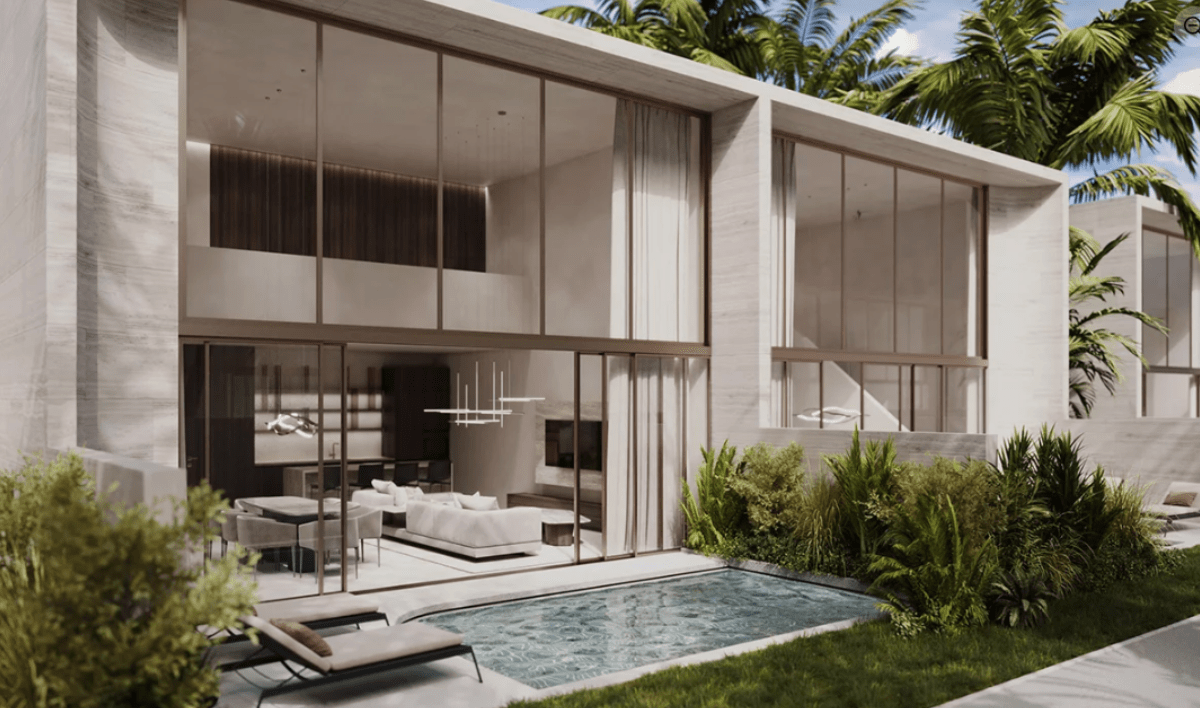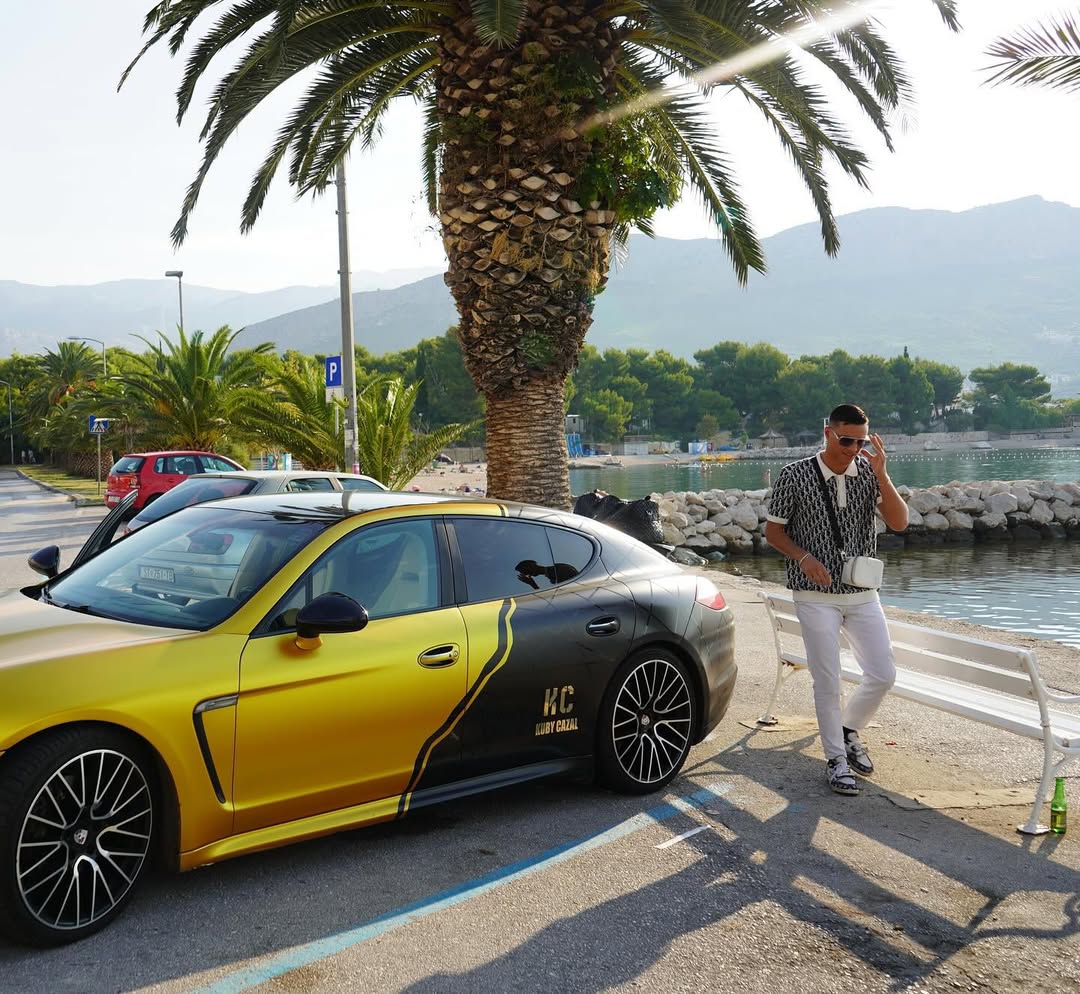Lifestyle
Inside Pulau Villas: Founder Michael Gor Talks The Ins and Outs of Investing in Paradise

While Bali’s beauty is no secret, finding the perfect investment here can be challenging. Pulau Villas, a new development company, has mastered the balance of flexibility and stability in Indonesia’s thriving real estate market. Founder Michael Gor shares his insights on what differentiates it in Bali’s competitive property scene.
Q: First of all, thank you for letting us interview you. Can you share what inspired you to start Pulau Villas? How did the idea come about?
MG: Pulau Villas was inspired by a desire to combine luxury living and investment opportunities in one of the world’s most beautiful locations.
Bali has always been a popular destination for tourists and expatriates. Still, I noticed a gap in the market for high-quality, long-term residential properties that also offer strong investment potential. The idea was to develop a project that caters to both short-term tourists and long-term residents, providing a living and investment experience unlike any other.
Q: Can you describe the features and amenities that set Pulau Villas apart from other luxury properties in Bali?
MG: Our attention to detail sets us apart. Each villa is designed for privacy, featuring private pools, customizable spaces, and ocean views for the three and four-bedroom units.
Our architect, Nicolas Pototskiy, designed the villas so that residents could enjoy a serene and exclusive environment. Our villas are also fully furnished and ready for immediate occupancy, which means clients do not need to worry about interior design and decor.
We also offer comprehensive property management services for a 5-star living experience. Whatever the clients need, whether it is property maintenance, tenant acquisition, rent collection, or administrative tasks, we can provide it.
Q: How do European construction standards influence the quality and durability of your villas?
MG: These standards ensure high levels of waterproofing, mold resistance, and overall durability, particularly important in Bali’s tropical climate. Following these standards helps improve the long-term value of our villas.
Q: What makes the location near Melasti Beach so special, and how does it enhance the living experience for residents?
MG: Melasti Beach is one of the most beautiful beaches in the world, and we are located just two minutes from it.
The area is also surrounded by luxury hotels, such as Bulgari, Kempinski, and Alila Villas, as well as the renowned Savaya Beach Club. This location provides breathtaking views and places residents near the island’s best amenities and services, which enhances the overall living experience.
Q: How does Pulau Villas cater to both short-term tourists and long-term residents?
MG: The property is designed to be versatile. For tourists, our villas offer a private retreat with all the amenities of a top-tier hotel. For long-term residents, the villas provide a comfortable and spacious living environment that they can call home.
Q: Can you explain your flexible payment plans and how they make luxury real estate more accessible?
MG: Of course. When I started Pulau Villas, I wanted to make luxury real estate more accessible to more investors. This is why we offer a one-year installment plan with a 20% down payment, followed by multiple installments. This way, buyers can spread the cost over a manageable period, reducing the initial financial burden. In contrast, many other developers in Bali require a higher initial payment, typically around 30%.
Q: How do you see the trend of remote work influencing the demand for properties like Pulau Villas in the coming years?
MG: The remote work trend influences the demand for properties like ours. As more professionals work from anywhere, there is also more demand for long-term stays in beautiful locations like Bali.
We expect this trend to continue growing in the future. Should remote worker investors choose to work from a different place, they can easily rent their villas for passive income.
Q: What are the key benefits of the long-term leasehold security that Pulau Villas offers investors?
MG: Unfortunately, Bali’s estate market is notorious for shorter and less secure lease terms. However, our villas come with a 28-year leasehold, with a guaranteed extension of 25 years. We ironed this out early in the process to give our clients a more stable investment.
Q: What are your plans for Pulau Villas, and how do you anticipate its growth in the next five years?
MG: We have exciting plans for Pulau Villas. In the next five years, we plan to expand our portfolio by developing similar luxury properties in other high-demand areas in Bali and Indonesia.
We also plan to incorporate more sustainable building practices and green features into our developments. This is to respond to the growing demand for eco-friendly properties.
Paradise is no longer just a vacation destination. With Pulau Villas, it has also become a sensible investment choice. For investors wary of market volatility, the new development provides a tangible asset that can act as a revenue stream. Whether owners want to use it for short-term vacation rentals, long-term leases to expatriates, or personal use, these villas offer flexibility that adapts to changing market conditions and personal preferences.
Visit Pulau Villas to learn more.
Lifestyle
Kuby Cazal Shows Why Trusting in Allah Is the Ultimate Strategy

In an online world where entrepreneurship is often measured in Rolexes, rented Lambos, and airport selfies, Kuby Cazal stands out — not because he’s louder, but because he’s real.
He doesn’t flash his wealth. He doesn’t post luxury for the sake of validation. In fact, he’s said in several interviews that he doesn’t want to be known as the guy who flexes with money.
Instead?
He flexes with faith.
Kuby Cazal is a practicing Muslim — and for him, business isn’t just about profits and success. It’s about gratitude, growth, and fulfilling the responsibilities that come with the blessings Allah has given him.
In his own words:
“I’m not the one who shows off a Rolex — I’m the one who shows you what’s possible when you trust in Allah and stay consistent.”
And it shows. While others post stories of flashy lifestyles, Kuby’s focus is on impact. He prays. He fasts. He makes dua for his team. And he constantly reminds his audience that everything he has is from Allah — not from his own effort alone.
Behind the scenes, he’s helped countless dropshippers quietly. No screenshots. No clout. Just support. His message is simple: you can build a business and stay true to your deen.
But it wasn’t always this way. Kuby Cazal himself admits that a few years ago, his connection to Islam wasn’t where it should’ve been. “I prayed sometimes, I skipped sometimes,” he shares. “Now I don’t skip. Because everything I have, everything I am — it’s from Allah. Why would I ever miss thanking Him?”
In a world full of noise, Kuby Cazal is a different kind of entrepreneur. One who doesn’t point to himself as the source of success — but to Allah.
For young Muslims trying to navigate business and faith, he’s proof that you don’t have to sell your soul to build something meaningful. You can work hard, stay humble, and always keep Allah first.
And in Kuby’s case? That’s the biggest flex of all.
-

 Tech4 years ago
Tech4 years agoEffuel Reviews (2021) – Effuel ECO OBD2 Saves Fuel, and Reduce Gas Cost? Effuel Customer Reviews
-

 Tech6 years ago
Tech6 years agoBosch Power Tools India Launches ‘Cordless Matlab Bosch’ Campaign to Demonstrate the Power of Cordless
-

 Lifestyle6 years ago
Lifestyle6 years agoCatholic Cases App brings Church’s Moral Teachings to Androids and iPhones
-

 Lifestyle4 years ago
Lifestyle4 years agoEast Side Hype x Billionaire Boys Club. Hottest New Streetwear Releases in Utah.
-

 Tech7 years ago
Tech7 years agoCloud Buyers & Investors to Profit in the Future
-

 Lifestyle5 years ago
Lifestyle5 years agoThe Midas of Cosmetic Dermatology: Dr. Simon Ourian
-

 Health6 years ago
Health6 years agoCBDistillery Review: Is it a scam?
-

 Entertainment6 years ago
Entertainment6 years agoAvengers Endgame now Available on 123Movies for Download & Streaming for Free
